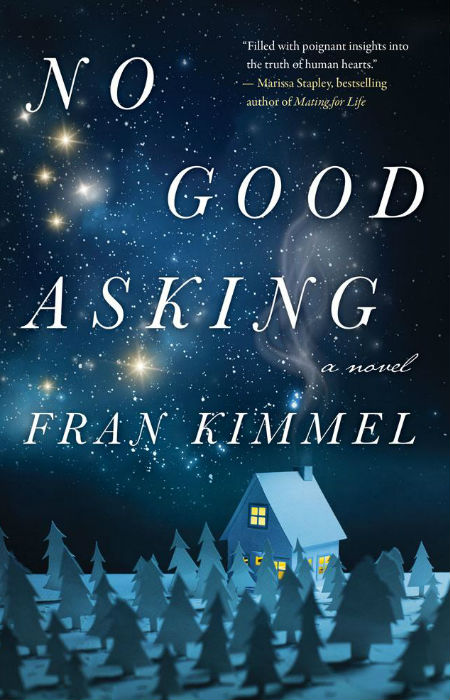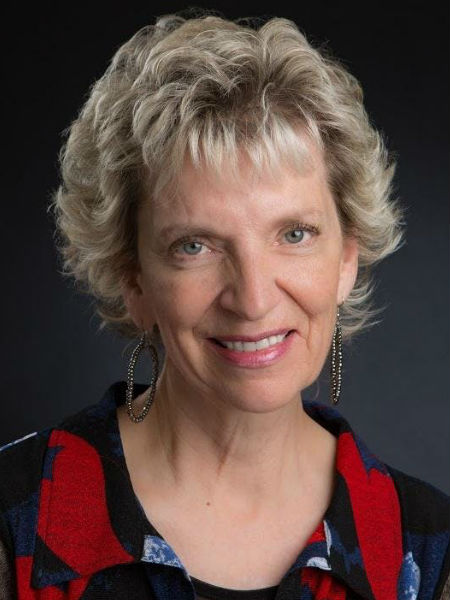
People, by and large, place a great deal of faith in first impressions.
They are an unofficial yardstick by which the worth of a person is judged and we cling them as social markers like a drowning man holding tenaciously to a buoy.
But it becomes quickly apparent in Fran Kimmel’s delightfully revelatory book, No Good Asking, that first impressions, limited as they are in all kinds of pertinent information on the person in question, can only get you so far, leaving you bereft of a full appreciation of the lives of the people you are getting to know.
In this case the Nylands, a family who have moved back to dad Eric’s hometown on Neesley, a small town on the snow-swept prairies of Canada at the urging of his troubled wife Ellie who is “angry a lot” in the words of her 14-year-old son Daniel aka Danny, a young man who is good at heart but who feels pushed off to the side in the ongoing life of his family his five-year-old brother Sammy, who appears to be on the autism spectrum, and his senile grandfather Walter who spends his days doing the same jigsaw puzzle over and over again while imagining it’s election day or that he has work to do on the farm.
“Beneath Ellie’s sulky and sharp-tongued surges, there were layers upon layers he [Eric] could no longer reach. He used to cover his own feelings by reflecting back hers. Now he wished he could crawl under her skin to find her again. And he wished she could do the same, even just on this one night, so she could see the tragedy unfolding from inside his head.” (P. 76)
On face value, the Nylands are five disaffected people who have lost meaningful connection with each other, sharing the same house and ostensibly the same new life that Ellie envisaged for them, but little else; that’s right as far as it goes, but as Kimmel, rightly-regarded as one of Canada’s foremost novelists delves deeper into the lives of her characters, you come to understand that, like all of us, there is more at work here than first meets the eye.
Far from wanting to leave each other behind, Eric and Ellie are still very much in love, just unsure of how that love finds expression after multiple miscarriages, career changes – Eric is less than thrilled to be working as a security guard after leaving a respected role as a sergeant in the Royal Canadian Mounted Police (RCMP) – and the rough-and-tumble that comes with raising two kids, one of whom has shown a recent proclivity for crashing trucks in the rush to get to his first mercurial girlfriend’s side.
Lifting the lid little by little on the family that exists behind the unsaid words and the poorly, angrily-expressed moments, Kimmel lets us get to know the Nylands who are good people in a bad place; it may sound like a cliched thing to say but the truth of it becomes clear when a series of events lead 11-year-old orphan Hannah to the family, a wholly unexpected development that sets in motion a slew of changes in the family that none of them could see they needed, caught up in their current dysfunctional family life.
Hannah’s arrival, the result of Eric’s latent cop instincts coming to the fore on a drive home in atrociously bad Winter weather, initially feels like a great burden, especial to Ellie who, for reasons later revealed with great sensitivity and some achingly beautiful writing, is struggling with self-imposed demands to make this Christmas just like the ones Eric’s much-missed domestic powerhouse of a mother Myrtle used to conjure up, seemingly out of nowhere.

Sammy too finds the intrusion of an utterly unknown person into his hermetically-sealed world traumatic at first, unwilling to accept that Hannah, whose needs are great and wants few – she simply wants a return to the unquestioning love her dead mother once provided to her – needs to be there, a resolutely-implacable position that only yields when Hannah finds a way to connect with him that belies an innate ability to connect with people, and connect other people, that seems to come naturally to her.
Eric and Danny for their parts are simply trying to find an in back to the family, a struggle which evinces itself in innocently-made but poorly-executed decisions that are not so much the result of anger and disaffection but a lostness that all of us, even the most connected among us, would know all too well.
Everyone, and every family loses their way at some point, and No Good Asking gives voice to that lostness but also, thankfully to the way back, and how simple and yet utterly profound that can be.
On the surface, and yes the book is full of contrasts between what is seen in passing and what is really going on, illustrating a deep understanding of the messy truths of the human condition, the narrative that might look twee and a little movie-of-the-week-ish in its scope and execution – broken family, saviour they didn’t know they needed, everything fixed, happily ever after.
But Kimmel, whose writing is poetically-beautiful from the word go while still retaining an emotional accessibility that has you falling in love with the Nylands and Hannah as much as they do with each other, transcends this magnificently, adding an authenticity to events that leaves the story feeling as real as it gets while still aspirationally hopefully and alive with possibility.
“This room had the same kind of feel, like anything might be possible, enough bits and pieces to build a new world from scratch. She [Hannah] took one step, testing the floorboard, then another, then another, until she stood right in front of the wooden table under the window. It was smaller than the one at the store, but there were glass jars lined up of every size and shape, and inside beautiful little bits were sorted—baby pompoms, thread spools—as tempting as candy. She wished she could lift the lids, one by one, reach down, and pull out handfuls from each to spread across the table in a spiral.” (P. 87)
Key to everything are the flawed but loveable characters Kimmel crafts with near-perfection.
Every single person in the family is full of so much hope and goodness and yet often that’s addled by the very same flaws and issues we all possess to some degree, granting No Good Asking an exquisitely-relatable intimacy and truthfulness of experience, one suffused with a growing sense that these people are love each other, and that they all want to stay connected in real and tangibly-meaningful ways if only they can find a way.
That way turns out to be Hannah but at no point does it all feel too convenient or easy; good things happen yes and healing comes as does reconnection but none of it is handed on a platter, with all every newly-shared moment as hardwon as it is spirit-reviving.
So movingly true is this beautifully-touching book that every single person will capture your heart in some way, every moment will resonate with its just out of grasp possibility and every emotional near-miss will make you weep with frustration at what might be lost.
But then the magic of human connection works its oft-confounding but marvellously-uplifting thing and you realise all over again, that what is seen barely scratches the surface of ours or anyone else’s lives and that far below exists a whole world of pain and sadness, hope and possibility, just waiting for the right person and moment to set things right if we’re open to it.
Kimmel gives a whole wonderful book of those moments and it’s a joy to behold, a heart-affecting reminder that we owe to ourselves and others always to look well beyond first impressions – who know what might result?